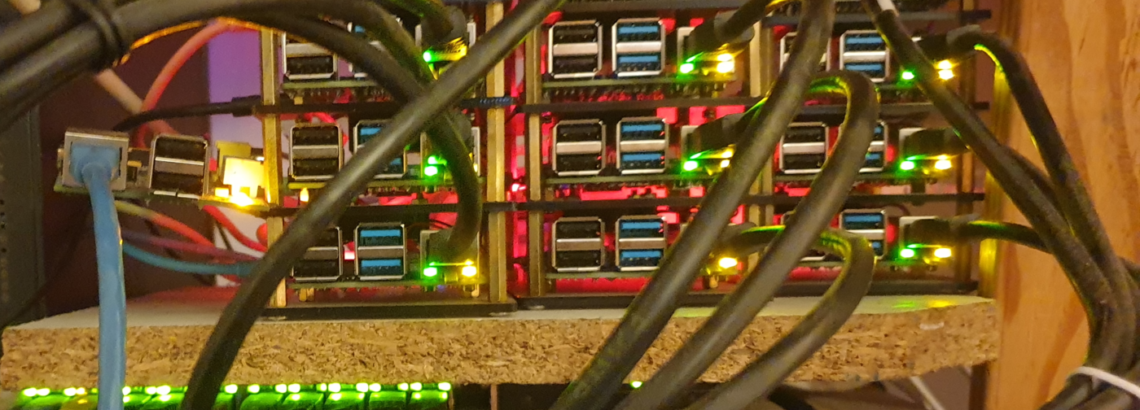
Kubernetes & Ceph on Raspberry Pi
Having recently deployed yet-another Kubernetes cluster using Kubespray, experimenting with a Raspberry Pi lab, I’ve been looking with some issue I was last having, with Raspbian.
The issue being that Raspbian does not ship with the rbd kernel module, which is usually necessary attaching rbd devices out of a Ceph cluster.
One way to get around this would obviously be to rebuild the kernel, though I’m usually reluctant to do so.
Digging further, it appears that as an alternative to the rbd kernel module, we may use the nbd one, which does ship with Raspbian.
Here is how we may proceed:
# apt-get install ceph-common rbd-nbd
# scp -p root@mon1:/etc/ceph/ceph.conf /etc/ceph
# scp -p root@mon1:/etc/ceph/ceph.client.admin.keyring /etc/ceph
# rbd -p kube ls
# rbd-nbd map kube/kubernetes-dynamic-pvc-d213345c-c5e8-11ea-ab48-ae4bf5a40627
# mount /dev/nbd0 /mnt
[...]
# mount /mnt
# rbd-nbd unmap /dev/nbd0
Now, that’s a first step. The next one would to to get this working with Kubernetes.
Lately, the CSI (Container Storage Interface) is being promoted up to a point that the Kubernetes scheduler image no longer ships with Ceph binaries: a controller will be dealing devices provisioning, while another one would be attaching and releasing Ceph block devices on behalf of our nodes.
Fortunately, while it is not official yet, all of the container images required can be found, searching on GitHub and DockerHub.
I did publish a copy of the configuration files required setting up Ceph rbd provisioning and devices mapping on Kubernetes. Although it is mandatory for your nodes to run some arm64 versions of the Raspbian image, which is currently in beta, though has been working pretty well as far as I could see.
This is yet another victory for Kubernetes, against products such as OpenShift: Lightweight, modular, portable, easy to deploy, … Efficient.